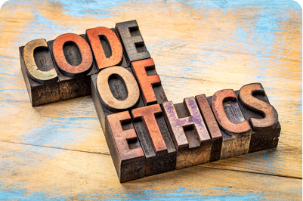To robustly drive transformation in the ICT Sector, strengthening ownership and Skills development in South Africa

WHO WE ARE
The B-BBEE ICT Sector Council was appointed by Minister on 24 September 2015. Their first priority was to align the B-BBEE ICT Sector Code with the Code of Good Practice 2013, whose primary objective was to strengthen transformation requirements in so far as natural black people are concerned.
WHAT WE DO
The main responsibility of Council is to develop and monitor implementation of the sector code including but not limited to be the custodian of the B-BBEE ICT Sector Code of South Africa. From September 2017, the Council will require support, financial and other resources to run a fully-fledged office.
EMPOWERMENT
Under the previous apartheid system, a plethora of policies and legislation was promulgated with the sole objective of denying black people, including black women, access to and control of South Africa’s economic productive resources and skills based purely on race and gender considerations.

GOVERNING PRINCIPLE
The Council shall be guided by the following basic principles:
1. Independence
2. Transparency
3. Fairness
4. Good Corporate Governance
5. Equitable Socio-economic
6. Transformation

CODE OF CONDUCT
The six ethical principles set out form the underlying foundation of the B-BBEE ICT Sector Council Code of Conduct and Ethics, and each Councillor and employee, as a condition of appointment, undertakes to adhere to these ethical principles. The ethical principles are clear, but have an inevitable appearance of generality.

CLARIFICATION NOTES
Latest Clarification Notes to be published soon
COUNCIL NAME
The name of the Council is the B-BBEE ICT Sector Council hereafter referred to as the “the Council” or “ICT Sector Council”. The Council is established in terms of section 9 (1) of the B-BBEE Act of 2003 as amended from time to time, with a mandate to oversee and monitor the implementation of the ICT Sector Code.
VALIDITY OF ACTS
As from the time of the adoption of this Constitution, the affairs of the B-BBEE ICT Sector Council shall be governed by the terms of this Constitution. Any resolution passed and any act performed in terms of such resolutions prior to the coming into effect of this Constitution shall remain valid and of full force and effect.
LEGAL PERSONALITY
The Council is a body corporate with perpetual succession, capable of acquiring rights, incurring obligations and entering into legal transactions, and of suing and being sued, in its own name. The Council shall be capable of performing such acts as are necessary for or incidental to the achievement of its objectives.
THE PURPOSE OF THE COUNCIL
The Council, guided by the legislation and policy instruments stated in the preamble, shall be established to perform, but not exclusively, the following functions: Oversee the implementation and monitoring of the Sector Code; Provide guidance on matters relating to black economic empowerment in the ICT sector.
Information Communications Technology
ICT stands for Information Communications Technology. ICT refers to any device or system that allows the storage, retrieval, manipulation, transmission and receipt of digitalinformation. For example, personal computers, digital television, email, robots
